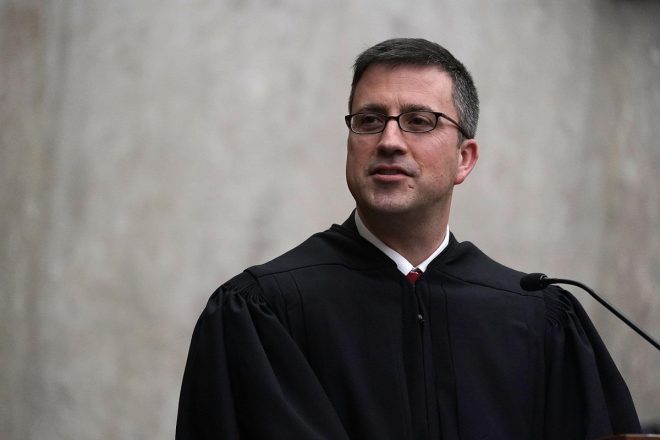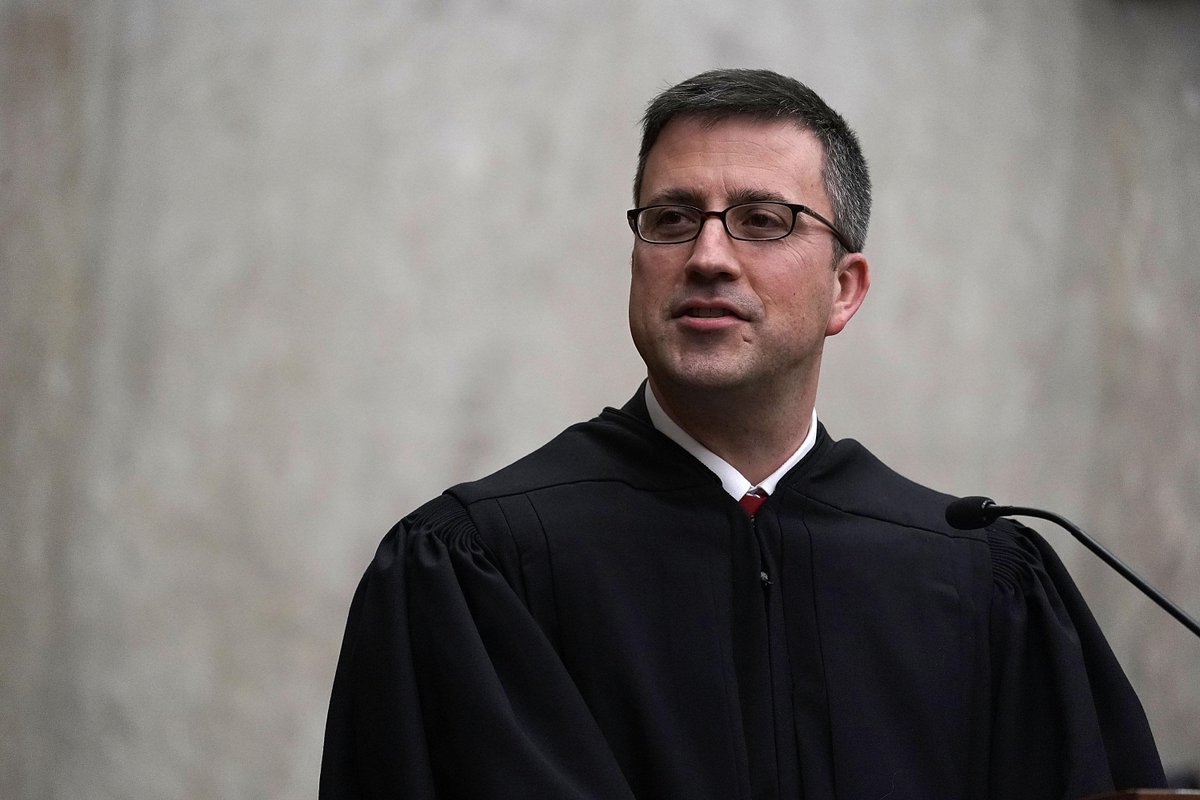
Federal Judge Denies AP’s Motion Against President Trump
In a significant legal development, a federal judge has denied the Associated Press (AP)’s motion that sought to compel President Trump to include their reporters in White House events and grant them access to Air Force One. This ruling has sparked considerable discussion and analysis regarding media access, transparency, and the evolving dynamics of the relationship between the press and the White House.
Background of the Case
The Associated Press, a major global news organization, filed this motion in response to what they perceived as restrictions on their ability to cover the President and his administration effectively. The request for access to White House events is rooted in the fundamental principles of journalism, which emphasize the importance of a free and independent press in a democratic society. The AP argued that such restrictions hinder their ability to report on governmental activities and, by extension, limit the public’s right to know.
However, the ruling from the federal judge indicates that there are legal boundaries regarding press access, particularly concerning the discretion exercised by the President and the White House. The court’s decision suggests a recognition of the complexities involved in media relations and the balance that must be struck between transparency and executive privilege.
Key Points of the Ruling
- YOU MAY ALSO LIKE TO WATCH THIS TRENDING STORY ON YOUTUBE. Waverly Hills Hospital's Horror Story: The Most Haunted Room 502
- Press Access and Government Transparency: The court’s decision raises questions about the extent to which the press can demand access to governmental proceedings. While transparency is a cornerstone of democracy, the ruling suggests that there may be limits to this access, especially when it comes to the President’s discretion in managing media relationships.
- The Role of the Associated Press: As a leading news agency, the AP plays a crucial role in informing the public and providing comprehensive coverage of national and international events. However, the ruling suggests that their approach to reporting, particularly regarding sensitive issues, can come under scrutiny.
- Deadnaming Controversy: The judge’s ruling also touched on a broader controversy regarding the AP’s reporting practices, particularly their decision to "deadname" the Gulf of America. This term is often associated with the practice of using a person’s former name, which can be seen as disrespectful in contexts relating to gender identity. The court’s mention of this issue indicates a growing concern over how language and terminology used by media organizations can impact public discourse and perception.
- Media and Political Relations: The dynamic between the media and political figures has always been fraught with tension, and this ruling exemplifies that ongoing struggle. While the press is tasked with holding power to account, political leaders often seek to control the narrative surrounding their administration. The court’s decision highlights this delicate balance and the challenges faced by both parties.
Implications for the Future
The implications of this ruling extend beyond the immediate case at hand. It raises important questions about the future of press access in the context of the Trump administration and beyond. As media organizations adapt to changing political landscapes, they may need to reevaluate their strategies for engaging with government officials and navigating the complexities of access and reporting.
Moreover, this case may set a precedent for future interactions between the press and the executive branch. Other media organizations will be closely watching how this decision is interpreted and applied in practice. It could influence their approaches to covering the White House and related events, as well as how they negotiate access with government officials.
Conclusion
The recent ruling by a federal judge denying the AP’s motion against President Trump underscores the intricate relationship between the media and the executive branch. As discussions about press access, government transparency, and media ethics continue to evolve, this case serves as a reminder of the challenges faced by journalists in their quest to inform the public. The ongoing dialogue surrounding these issues will be critical in shaping the future of journalism in America.
As the landscape of media continues to change, both the press and political figures must navigate their roles carefully, ensuring that the principles of democracy remain at the forefront of their efforts. The ruling also highlights the need for ongoing discussions about the ethical implications of language and representation in journalism—issues that are increasingly relevant in today’s society.

JUST IN: A federal judge just DENIED the AP’s motion against President Trump to force him to include them in White House events and allow them back into Air Force One.
Even the courts agree that the AP is doing a disservice to the country by deadnaming the Gulf of America. pic.twitter.com/Ptl6uqTOjH
— George (@BehizyTweets) February 24, 2025
JUST IN: A federal judge just DENIED the AP’s motion against President Trump to force him to include them in White House events and allow them back into Air Force One
The political landscape in America is always evolving, and recently, we’ve witnessed a significant ruling involving the Associated Press (AP) and former President Donald Trump. In a move that stunned many, a federal judge denied the AP’s motion to compel Trump to include their reporters in White House events and to allow them access to Air Force One. This decision has sparked discussions about media access, governmental transparency, and the responsibilities of news organizations.
It’s essential to understand the implications of this ruling. The AP sought to challenge the Trump administration’s media access policies, which many believed were limiting press freedom. This denial raises questions about the relationship between the media and the government, particularly when it comes to covering major events that shape national discourse.
Even the courts agree that the AP is doing a disservice to the country by deadnaming the Gulf of America
The ruling didn’t just focus on media access but also touched on a controversial issue: the naming of geographic locations. The phrase “deadnaming the Gulf of America” refers to the ongoing debate surrounding the terminology used to describe certain areas. Critics of the AP argue that their reporting on this topic has been misleading or insensitive, thus doing a disservice to the public by not accurately representing the ongoing discussions surrounding these names.
This issue isn’t just a matter of semantics; it taps into larger themes of identity, representation, and historical context. When news organizations fail to adapt their language to reflect the evolving understanding of geography and culture, it can alienate communities and perpetuate outdated narratives. The court’s agreement with this perspective suggests a shift toward greater accountability for media organizations in their reporting practices.
The role of the Associated Press in modern journalism
The AP has long been a cornerstone of American journalism, providing news coverage that reaches audiences worldwide. With its commitment to factual reporting, the organization has often set the standard for journalistic integrity. However, the recent ruling highlights ongoing tensions between traditional media and the current political climate, where access to information can be a contentious issue.
In an era where misinformation spreads rapidly, the role of established news organizations like the AP is more critical than ever. They are not just tasked with reporting the news; they have a responsibility to ensure that their coverage is accurate, fair, and reflective of the diverse perspectives present in society. This ruling serves as a reminder that accountability in journalism is paramount, and media organizations must continuously evaluate their practices to better serve the public interest.
Media access and governmental transparency
Access to information is a cornerstone of democracy, and the relationship between the press and the government is vital for ensuring transparency. When media organizations are barred from accessing important events or information, it raises concerns about the public’s right to know.
The denial of the AP’s motion sends a clear message about the challenges faced by media outlets in obtaining access to government events. It also underscores the importance of maintaining a free and independent press, especially in times of political turmoil. Journalists play a critical role in holding those in power accountable, and any barriers that inhibit their ability to do so can have significant ramifications for democracy.
As citizens, we must remain vigilant about the state of our media landscape. Supporting independent journalism and advocating for press freedoms is essential for maintaining a well-informed public. When media organizations face challenges in accessing information, we all lose out on the ability to engage in informed discussions about the issues that matter most.
The implications for future press freedom
This ruling could set a precedent for how similar cases are handled in the future. If media organizations continue to face challenges in accessing government events and information, it could lead to a more closed-off political environment.
Moreover, the ruling raises questions about the role of the judiciary in mediating disputes between the press and the government. As we’ve seen in this case, judges may weigh the significance of media access against other factors, such as national security or administrative burdens. The delicate balance between these competing interests will be crucial in shaping the future of press freedom in America.
As we reflect on this ruling, it’s important to recognize that the fight for press freedom is ongoing. Journalists and media organizations must continue to advocate for their rights to access information and cover the stories that matter.
Public reaction and the future of media coverage
Public reaction to the ruling has been mixed. Supporters of press freedom have expressed concern over the implications for media access and transparency, while others believe that the ruling reflects a necessary caution regarding media influence.
As citizens, it’s crucial to engage in conversations about the role of the press in democracy. We must consider how we can support responsible journalism and hold media organizations accountable for their reporting. This involves being critical consumers of news and advocating for accurate and fair coverage that reflects the diverse experiences of our society.
In the coming weeks and months, we can expect to see continued discussions around media access, transparency, and the responsibilities of news organizations. This ruling is just one part of a larger narrative about the evolving relationship between the press and the government, and it will be important to stay informed and engaged as the situation develops.
A call to action for responsible journalism
As we navigate these complex issues, it’s essential for all of us to become more informed and engaged with the media we consume. This means seeking out diverse perspectives, supporting reputable news organizations, and holding them accountable for their reporting practices.
By advocating for responsible journalism, we can help ensure that the media remains a vital force for democracy. The fight for press freedom is not just the responsibility of journalists; it’s a collective effort that requires the involvement of all citizens.
In conclusion, the recent ruling denying the AP’s motion against President Trump’s administration serves as a potent reminder of the challenges faced by media organizations. As we move forward, let’s commit to fostering a media landscape that prioritizes accuracy, fairness, and accountability. Together, we can help shape a future where the press remains a crucial pillar of democracy, facilitating informed discussions and promoting transparency in government.
